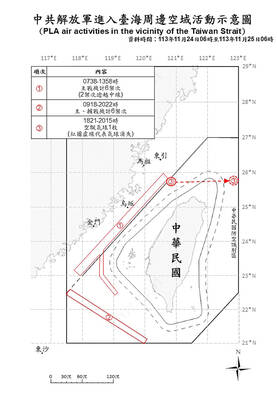
iBet uBet web content aggregator. Adding the entire web to your favor.
Link to original content: http://www.taipeitimes.com/News/taiwan/archives/2008/06/26/2003415773

Pan Ying-chieh (潘英傑) and Wang Pan Mei-yu (王潘美玉) were honored for their poetry yesterday at a ceremony for outstanding literary works written in romanized Aboriginal languages — something they said they could not dream of five years ago.
“The treasure of a culture can only be found in its language, while the essence of the language is hidden in its literature,” Minister of Education Chen Jei-cheng (鄭瑞城) said at the ceremony. “The purpose of this competition is to preserve and promote Taiwan’s rich Aboriginal languages and cultures.”
Out of 107 works that were entered in the competition held by the Ministry of Education, a total of 49 pieces — poetry, short novels, essays and translations written in Amis, Atayal, Paiwan, Bunun, Puyuma, Rukai, Tsou, Sediq and Pazeh — were selected to receive the award.
Among them, Wang Pan and Pan’s works in Pazeh were the most eye-catching.
The Pazeh are an assimilated plains tribe that used to inhabit regions in Taichung, Changhua and Nantou counties before the Chinese migrated to Taiwan in larger numbers about 400 years ago.
Over the centuries, the Pazeh have gradually disappeared from those areas because of marriages with non-Aboriginals or cultural assimilation.
The great majority of Pazeh have adopted Hoklo (also known as Taiwanese) as their native tongue.
However, about five years ago some Pazeh who did not want to see their language and culture become extinct began efforts to save the language.
“In the 1990s, many academics predicted that the Pazeh language would completely die out,” said Lai Kuan-yi (賴貫一), a linguist who played an important role in saving the Pazeh language. “It’s a miracle that they [the Pazehs] brought it back to life.”
“I knew I may be an Aborigine, but I didn’t know which tribe until someone told me about five years ago,” Pan, 60, said. “There’s only 94-year-old Pan Chin-yu [潘金玉] in Puli [埔里] — where I live — who is able to speak Pazeh, so I learned from her.”
Wang Pan, who is now 70 and also lives in Puli, began to learn Pazeh five years ago from Pan Chin-yu as well.
“Right now, there are about 200 regular students who attend Pazeh classes offered by Pan Chin-yu in Puli,” Lai said, adding that classes with fewer students also exist in Miaoli and Taichung.

Theaters and institutions in Taiwan have received 28 threatening e-mails, including bomb threats, since a documentary critical of China began being screened across the nation last month, the National Security Bureau said yesterday. The actions are part of China’s attempts to undermine Taiwan’s sovereignty, it said. State Organs (國有器官) documents allegations that Chinese government officials engage in organ harvesting and other illegal activities. From last month to Friday last week, 28 incidents have been reported of theaters or institutions receiving threats, including bomb and shooting threats, if they did not stop showing the documentary, the bureau said. Although the threats were not carried out,

‘GRAY ZONE’ TACTICS: China continues to build up its military capacity while regularly deploying jets and warships around Taiwan, with the latest balloon spotted on Sunday The US is drawing up contingency plans for military deployments in Japan and the Philippines in case of a Taiwan emergency, Japan’s Kyodo news agency reported. They would be incorporated in a first joint operation plan to be formulated in December, Kyodo reported late on Sunday, citing sources familiar with Japan-US relations. A US Marine Corps regiment that possesses High Mobility Artillery Rocket Systems — a light multiple rocket launcher — would be deployed along the Nansei Island chain stretching from Kyushu to Yonaguni near Taiwan, Kyodo said. According to US military guidelines for dispatching marines in small formations to several locations,

As Taiwan celebrated its baseball team’s victory in the World Baseball Softball Confederation’s Premier12 on Sunday, how politicians referred to the team in their congratulatory messages reflected the nation’s political divide. Taiwan, competing under the name Chinese Taipei (中華台北隊), made history with its first-ever Premier12 championship after beating Japan 4-0 at the Tokyo Dome. Right after the game, President William Lai (賴清德) congratulated the team via a post on his Facebook page. Besides the players, Lai also lauded the team’s coaching and medical staff, and the fans cheering for them in Tokyo or watching the live broadcast, saying that “every

The Mainland Affairs Council (MAC) yesterday confirmed that Chinese students visiting Taiwan at the invitation of the Ma Ying-jeou Foundation were almost all affiliated with the Chinese Communist Party (CCP). During yesterday’s meeting convened by the legislature’s Foreign Affairs and National Defense Committee, Democratic Progressive Party (DPP) Legislator Michelle Lin (林楚茵) asked whether the visit was a way to spread China’s so-called “united front” rhetoric, to which MAC Deputy Ministry Shen You-chung (沈有忠) responded with the CCP comment. The MAC noticed that the Chinese individuals visiting Taiwan, including those in sports, education, or religion, have had increasingly impressive backgrounds, demonstrating that the